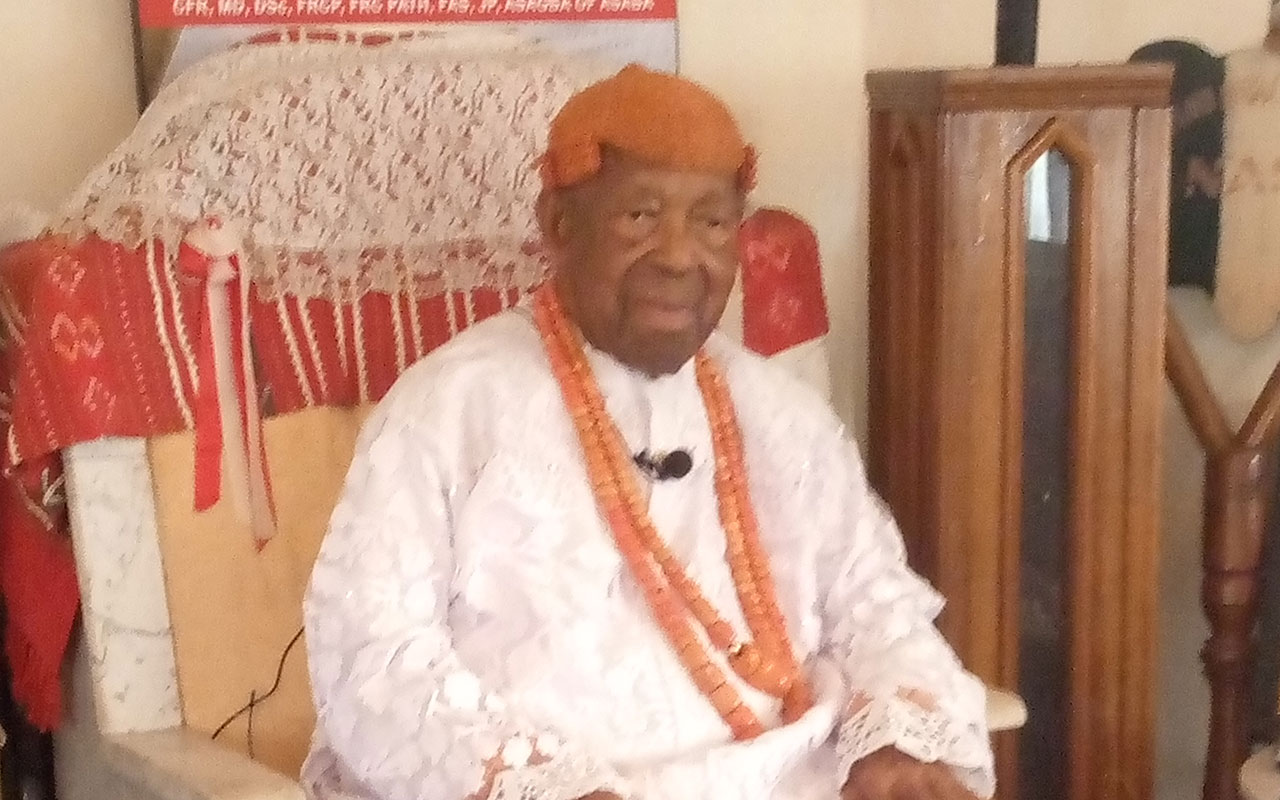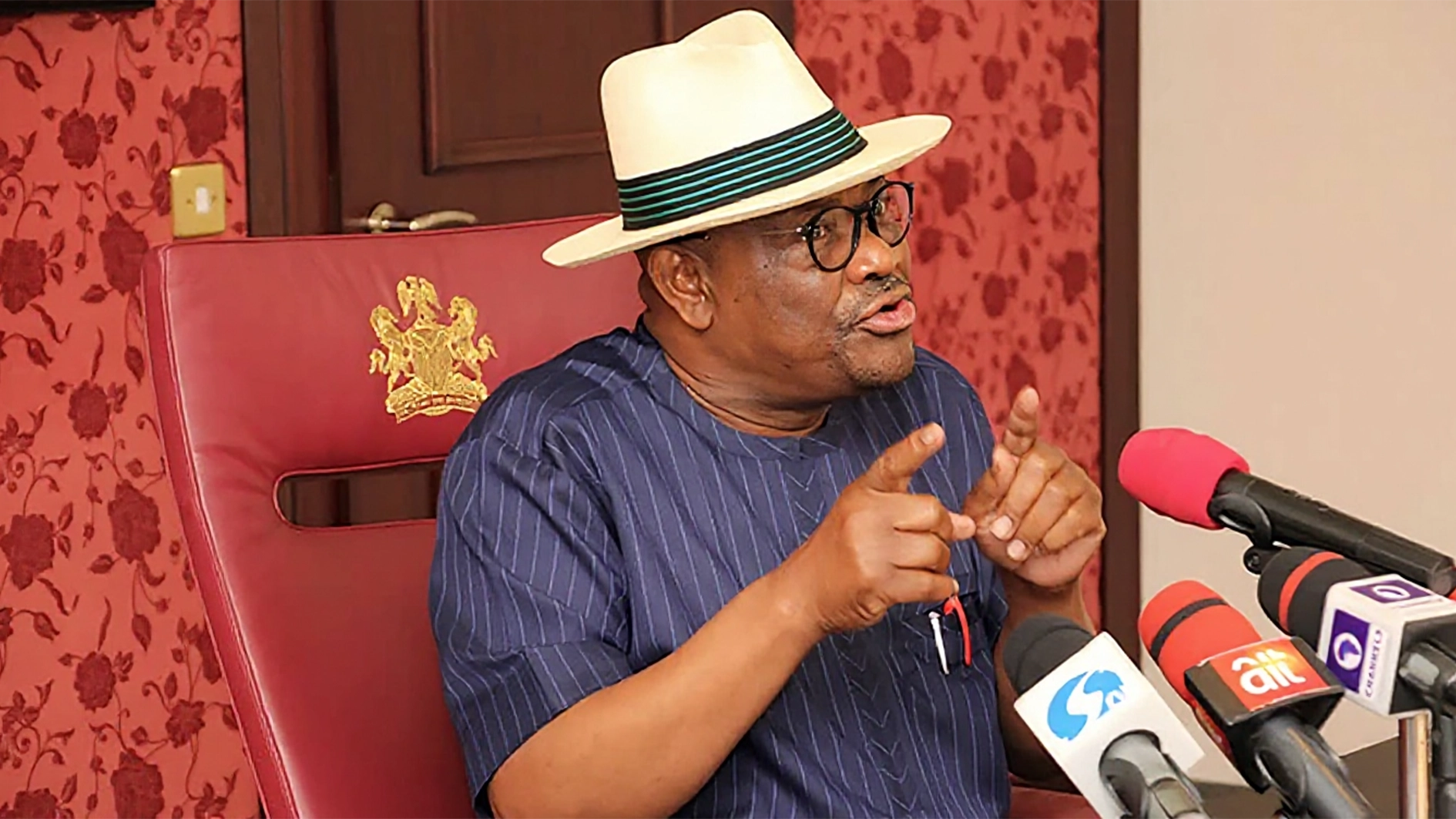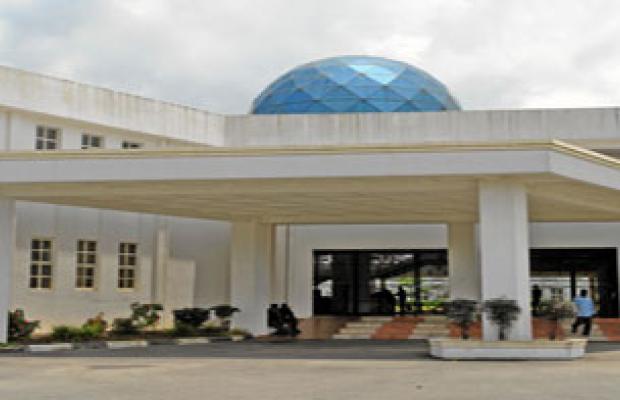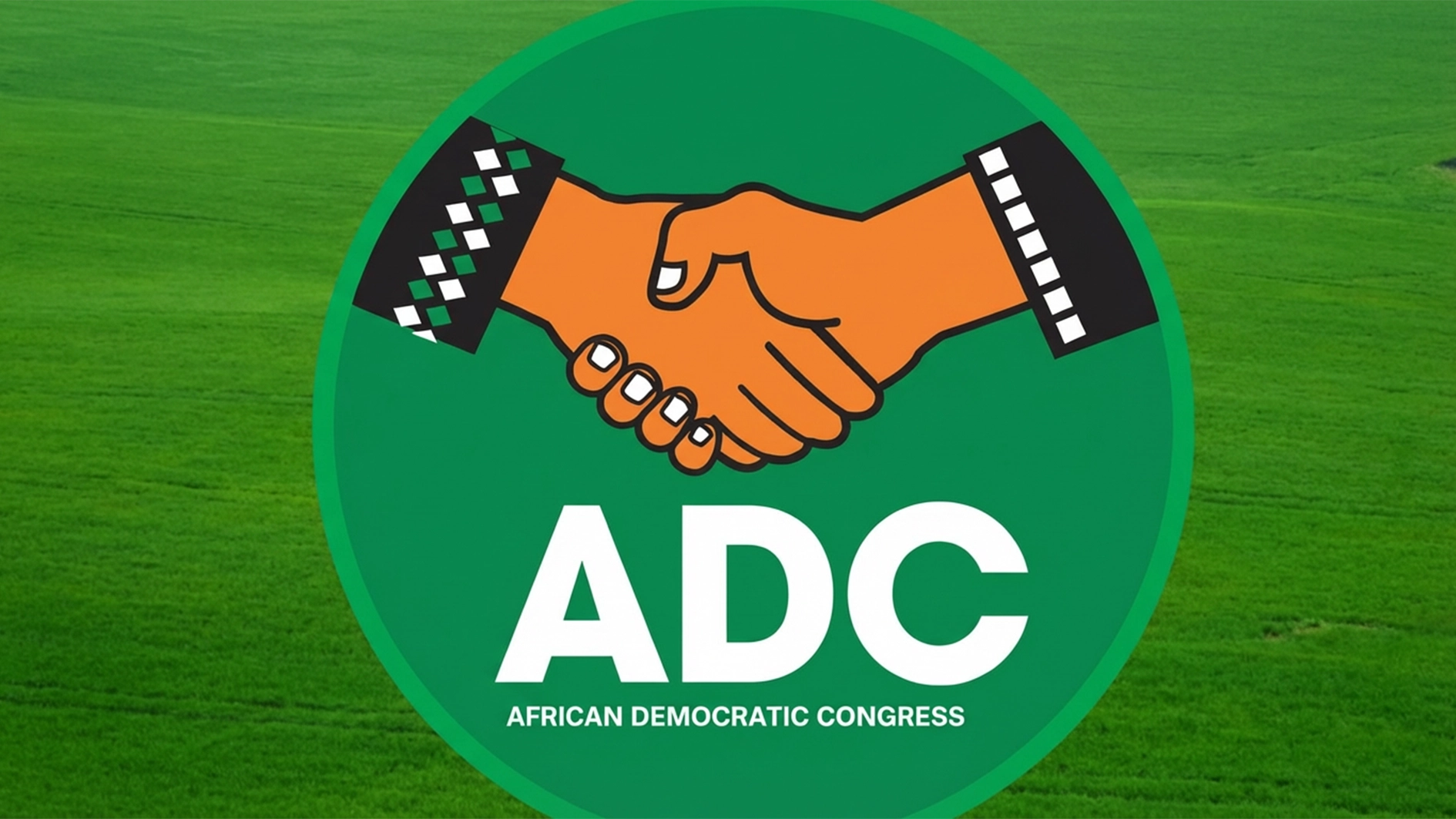
The revered Asagba of Asaba, Obi (Prof) John Chike Edozien, is the 13th ruler of Asaba kingdom. Recently, at a reflective dialogue with Chief Chuck Nduka-Eze, the Isana Ajie of Asaba and the media, Prof. Edozien highlighted the role traditional institutions must play in running the affairs of Nigeria. Obi Edozien, a professor of medicine, while making preparations to celebrate his centenary birthday, talks briefly about Asaba, the capital of Delta State, and also, addresses other burning national issues as they affect the country. MONDAY OSAYANDE was at the session.
Centenary on earth calls for celebration; and for the erudite Professor and Royal Father, there can’t be anything lesser. The Asagba of Asaba, His Royal Majesty, Professor Joseph Chike Edozien, is no doubt, a personification of the institution he represents.
Born to the famous family of Edozien – the direct descendants of Nnebisi the founder of Asaba – his father was Nathaniel Okafor Edozien, a renowned son of the soil, and one of the most senior indigenous officials of the then Nigerian Coal Corporation in Enugu.
His mother, Nwakuso Edozien née Odogwu, was the daughter of a prominent Asaba chief, and a notable trader.
He was still tender when his father sent him to live with an uncle who was a school master in Warri. There, he attended the Catholic School from 1933 to 1937. His secondary education was in Christ the Kings College, Onitsha, between 1938 and 1942.
In 1942, he attended the Yaba Higher College and then proceeded to Achimota School, Accra, Ghana.
Professor Edozien began his university education in 1944, after he had secured an admission into the University College of Dublin, Ireland.
He successfully completed his BSc degree with honours in Physiology from the National University of Ireland in 1948, with further success on MSc in Physiology in 1950, Bachelor of Medicine and Bachelor of Chemotherapy (MBBCh) in 1954. He received several academic awards in the process to justify his satisfactory performance.
His academic career began with an appointment as a Lecturer in Clinical Biochemistry in Middlesex Hospital Medical School, University of London in 1951. In 1952 he was appointed as a Senior Lecturer in Chemical Pathology at the University College, Ibadan. He returned to Ibadan, Nigeria after his successful studies in Ireland.
In 1955, he married Modupe Smith; a radiographer at the University College Hospital (UCH) Ibadan. Her father was one of the first indigenous managers of the United Africa Company and her maternal grandfather was Herbert Macaulay, Nigeria’s first surveyor and one of the principal actors in Nigeria’s independence movement.
How does the king feel celebrating hundred years?
“I’m very happy to be alive and healthy to celebrate the 100 years birthday. I thank God for long life,” he said.
The personality of the Asagba of Asaba is one that no one could easily gloss over in a sentence. He is one of the early Nigerians who challenged the unknown to travel by sea to Europe, a journey that could last for an upward of three months, in search of greener pastures.
In fact, he cannot effectively discuss Asagba without Asaba, neither can you talk about Asaba without Asagba. He denounced the comfort of academic environment, and the allure of American society to pick up leadership role as a traditional ruler.
What are his thoughts about the journey Asaba has made from cradle till now?
“This is the brief history of Asaba Kingdom. Asaba has been here, from information available, for about 500 years. The first acknowledged king of Asaba was Nnebesi, who came to Asaba from Igala land. When he died, unfortunately, there was no successor, and the town was divided between five of his six grandchildren. This was how the five Ebos (quarters) were developed. There was no king, and these five Ebos lived together, independent of one another, for 400 years. How they managed to live in one town when there was no single leader still remained a mystery to me. But anyway, after 400 years, they realised that for progress, they needed one leader. So, they created a title of Asagba of Asaba – king for the five units. Surprisingly, they didn’t unify the land. They had one king, five Ebos and five lands. So, Asaba is a kingdom, but the king doesn’t have control of any land. So, entities of the five units of Asaba functioned more or less like a local government. One of my ambitions since I became the Asagba of Asaba is to complete the journey and unify the land. We are in the process of doing that, the end will be one king, one land for a full fledged kingdom,” the Asagba said.
The late colonial and early independence periods were exciting times in Nigeria. Educated Nigerians rapidly occupied positions of responsibility in politics, commerce and academia. Everyone’s hopes were high that in a short time the country would bridge the gap with the more developed countries of Europe and North America. The euphoric mood permeated the University of Ibadan, and Edozien’s groundbreaking research in nutrition helped win it a reputation as a rising academic centre. He was appointed a professor in 1961 and became the Dean of the Faculty of Medicine in 1962.
Edozien’s career at Ibadan ended in 1967, a casualty of the political crisis that ended the euphoria of the late 1950s and early 1960s and resulted in the coups of 1966 and eventually led to the Nigerian Civil War.
In 1967 he was instrumental in the efforts to establish the University of Benin in the newly created Midwestern Region of Nigeria. He was also implicated in the plots that resulted in the Biafran invasion of the Midwestern Region at the beginning of the civil war and was forced to flee the country.
After a period as a refugee in France, he was appointed as a professor of Nutrition at the Massachusetts Institute of Technology, Cambridge, MA. In 1971 he became a professor and head of Department of Nutrition, of the School of Public Health of the University of North Carolina.
Considering that he has seen a lot in his hundred years existence, and also, had experience of the different governments that have governed Nigeria, does he have any idea or suggestions on how best to keep the country one?
“I recognised when British ruled Nigeria. We saw the civil war and the efforts to bring Nigeria back as one country. The concept of having one Nigeria with the creation of states was initiated by Gen. Yakubu Gowon. In my opinion, the Constitution has one serious defect. British ruled Nigeria as a colony for many years and there was peace and development. I believe that the peace and development was because of indirect rule, where Britain ruled the people under the direction of their kings,” he said.
He continued, “after independence, politicians created the Federal Republic of Nigeria, and also, local governments following the pattern they observed in many countries; they then left the people and their kings out of the scheme. So, in Nigeria they have two local governments: A constitutional local government with the power and the money; and the people’s local government, traditional rulers and the land. I think that is the greatest impediment in the development of Nigeria.”
On what steps should be taken nationally to accomplish that? He had this to say: “These issues ewere in mind when I proposed them at the constitutional amendment conference. I believe if the same principle of indirect rule is established for traditional institutions, they will be able to identify these rebels like Boko Haram and others identified by members of the community. We will no longer have them in the country. So, the cure to this lies in the recognition of traditional institutions as the true local government in Nigeria.”
On ethnic tensions and suspicions between the various ethnic groups in Nigeria, he said: “I sometimes wonder why ethnic issue is so strong in Nigeria. Why I said so is, because it is not an issue with me. When I was a professor in the University of Ibadan, my household: I’m an Igbo man from Asaba, my wife is Egba from Abeokuta, my cook is a Hausa from Bauchi, and my steward from Calabar. And we all lived happily together and communicated in English Language. So, why Nigeria cannot live together is beyond my imaginations.”
According to him, “from my own observations, and watching the interplay of personalities in government, I think ethnic issues are as strong today, as they were 40 years ago, and one of the things I suggested in different quarters was that universities in Nigeria should create faculty or department of nation building to study how we are to put over 250 ethnic groups into one nation. I think is something to study in Nigerian universities to reduce the problem of ethnicity because it is a very strong problem of putting 250 ethnic groups in one nation.”
He said, “ethnic issue is a strong matter in the mind and heart of the people in Nigeria. This is a call to action from the different units that make up Nigeria. A Delta State can become a nation. Nigeria should create like 10 different nations that can cooperate like the European Union to reduce the tension of ethnicity in Nigeria.”
His message to Nigerian leaders?
“I believe that Nigeria can be a very great nation. We need to have peace and development in Nigeria to make it great. But one of the major problems and setbacks in Nigeria is corruption. We need to fight corruption resolutely. Corruption is so deep in Nigeria. My observation is that we have reached a stage that everything is suspicious,” he noted.
He added, “like I said, there is need for constitutional review to fight this issue of corruption: To know the causes of corruption, and how best to solve it, because for now, majority of Nigerians cannot do something without seeking first their benefits. That is the attitude we have today. So, we need to have a change of mind, because with this kind of attitude there can never be development.”
The Asagba said, “but my observation is that an average Nigerian does not have any idea on how best to fight corruption, because there is no trust. We have come to a stage that anything we hear is false unless proven right. So, there is need to fight this disease called corruption if we want Nigeria to get out of the problems we are having now.”
If he wants Nigerians to feel good what will he do to them?
“I believe Nigeria is a great country where we need peace and development. But to achieve it, we have to fight poverty and improve on the economy. During independence, two dollars made one naira, but today one dollar is over a thousand naira. So, how can we survive even when most of the people are not working? The level of corruption in Nigeria is surprising. So, the problem of corruption, rural poverty, and insecurity cannot be solved until there is Constitution that merges the constitutional government and the traditional institutions,” he said.






